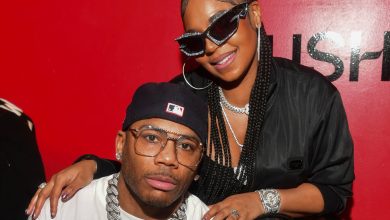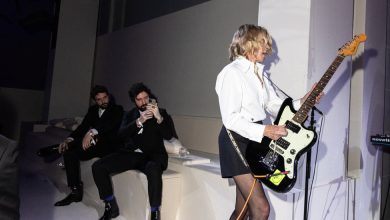Watching This Movie Taught Me It Was OK to Fail

One evening in May 2017, I saw the director John Cassavetes’s 1977 film, “Opening Night,” starring his wife and collaborator, Gena Rowlands, in the lead role. Rowlands plays Myrtle Gordon, a successful stage actor whose life is upended when she witnesses a young fan’s death in a traffic accident. It’s an intense film, with long stretches of mortification punctuated with grim humor, concluding in a scene of agonizing victory: So drunk she can barely stand, Myrtle arrives hours late to the first night of her new play, delivering a chaotic and heroic performance which unravels and reshapes the production. It’s a triumphantly unhappy happy ending, which I watched with a mixture of horror and glee.
I was in grad school at Berkeley at the time, studying literature, subletting a room in a too-expensive apartment around the corner from Chez Panisse. I was not enjoying myself. Most days I’d walk down Shattuck Avenue to the library, where I’d borrow as many books as I could carry, then head back to my room and leave the books in tottering piles, unread. I spent many evenings drinking alone, occasionally half-watching a movie on my laptop. I dreamed of dropping out, but was terrified of failure. When this routine eventually became too desolate, I occupied myself in the evenings by watching whatever was on at the Pacific Film Archive, where I caught “Opening Night.”
The genius of Rowlands’s performance style is in the way she melds the unapproachable beauty — sophistication, elegance, poise — of Hollywood’s Golden Age with a gift for physical humor. There are moments in her performances that approach slapstick: In one scene in “Love Streams,” from 1984, she tries to persuade a French baggage handler to help her with a preposterous pile of luggage; it could be something out of Jacques Tati. Elsewhere, she reproduces erratic gestures reminiscent of vaudeville, wildly jerking her thumb in the air and blowing raspberries at a passer-by in Cassavetes’s 1974 film, “A Woman Under the Influence.”
But these moments aren’t quite played for laughs; they’re as painful as they are funny. Her gestures border on tics: expressive of something painful, buried, hard to confront. There are these looks she gives people, an irresistible combination of refinement and corniness, simultaneously ingratiating and imposing. There’s this way she has of telling people to “listen,” half-imperative, half-plea; a way that the skin around her eyes crinkles in a petition to be understood. She is adept at using physicality to undercut her humor with desperation, her characters buoyed by a willingness to withstand humiliation.
Watching Rowlands’s performance in “Opening Night” showed me the necessity of embracing failure. That film is an exploration of the intense, sometimes mortifying personal commitment needed to create art. It dislodged something inside me and sharpened the smudged textures of my days. Rowlands’s character is thrown into personal and professional crisis by the prospect of becoming stuck — typecast in a particular kind of role — and of her life’s becoming constricted as a result. Watching her writhe against this tightening, I recognized myself: I realized that my graduate studies were primarily a way of rerouting my blocked desire to write. Again, I was afraid: incapable of writing because I was unwilling to risk rejection.
A little over a month after that screening of “Opening Night,” my father died suddenly. I came back to England and, half-glad for the excuse, abandoned my Ph.D. But I didn’t know what to do instead, and hunkered down into my despair. Feeling the weight of the failure that I’d feared, I slid into a morass. In my grief I had to figure out how exactly I was going to live, and I felt wretched about my prospects. To distract myself, I began a project of writing about every movie I watched. Slowly, the words started to come, but I still struggled with a reluctance to look too closely at the difficult feelings that my grief had left me with.
Five Movies to Watch This Winter
1. “The Power of the Dog”: Benedict Cumberbatch is earning high praise for his performance in Jane Campion’s new psychodrama. Here’s what it took for the actor to become a seething alpha-male cowboy.
2. “Don’t Look Up” : Meryl Streep plays a self-centered scoundrel in Adam McKay’s apocalyptic satire. She turned to the “Real Housewives” franchise for inspiration.
3. “King Richard”: Aunjanue Ellis, who plays Venus and Serena Williams’s mother in the biopic, shares how she turned the supporting role into a talker.
4. “Tick, Tick … Boom!”: Lin-Manuel Miranda’s directorial debut is an adaptation of a show by Jonathan Larson, creator of “Rent.” This guide can help you unpack its many layers.
5. “The Tragedy of Macbeth”: Several upcoming movies are in black and white, including Joel Coen’s new spin on Shakespeare’s “Macbeth.”
I found myself watching and rewatching Gena Rowlands’s movies, particularly her collaborations with Cassavetes. There is something in their partnership that captivated me, something to do with their commitment to creating art in a way that is honest and intense and as free from outside interference as possible. I found myself drawn to Cassavetes’s roles too, but his performances seemed somehow too assured, too self-sufficient, his characters too confident in their bearing. What Rowlands offered me was an uncompromising acknowledgment of the fear and doubt at the heart of life — the confusion, the distress, the trepidation.
There are many reasons to watch movies, some better than others. One of the worst reasons is to learn how to live. I know that films won’t provide me with a reliable way to navigate my emotional difficulties, but I still watch them in the hopes they might do so eventually. Rowlands’s work with Cassavetes tells us, explicitly, that everyone in the world is very screwed up. Her performances explore the inescapable fact of being screwed up. They offer an approach to life that takes seriously the constant threat of failure — the failure to live well, the failure to love. By probing so far into the tortuous difficulties of trying to live honestly, by embracing embarrassment and even, at times, triteness, they offer a strange reassurance. At one point in “Love Streams,” Rowlands’s character says, “I’m almost not crazy now,” and her delivery of those words gives me great comfort. Almost not crazy: maybe that’s plenty.
Andrew Key is the author of the forthcoming novel “Ross Hall” (Grand Iota, 2022). His work has previously appeared in “The Point” and “New Socialist.”




